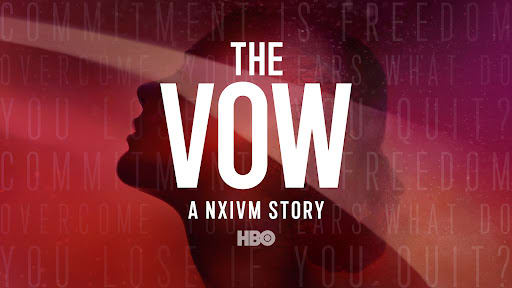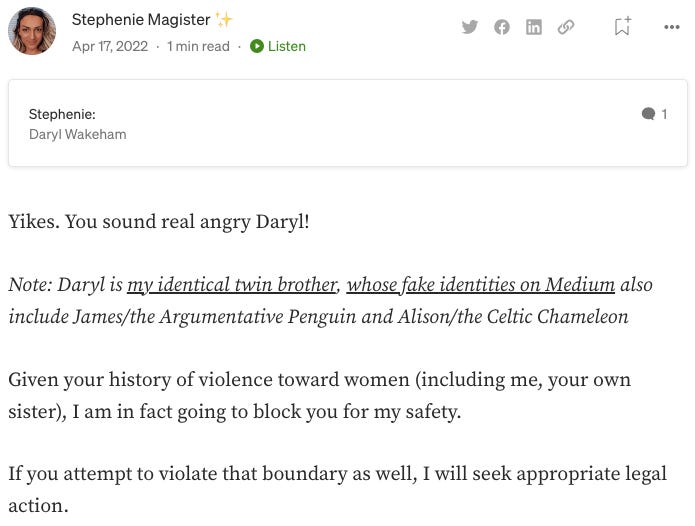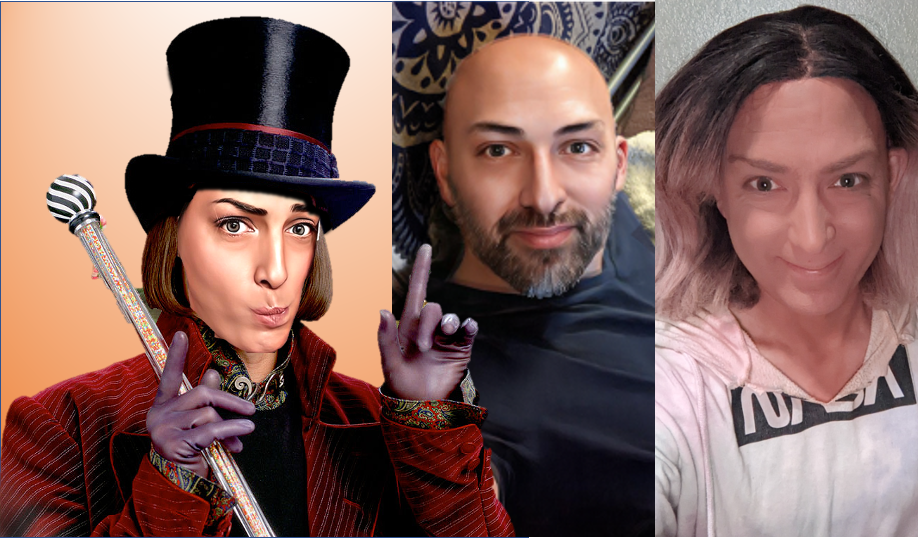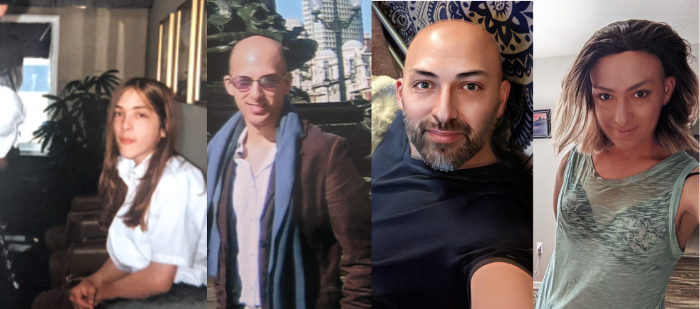You'll Never Look At Cults, Con Artists, Or Identical Twins The Same Way Again
I screamed with grief as I accepted how I’d helped my sibling abuse women for decades
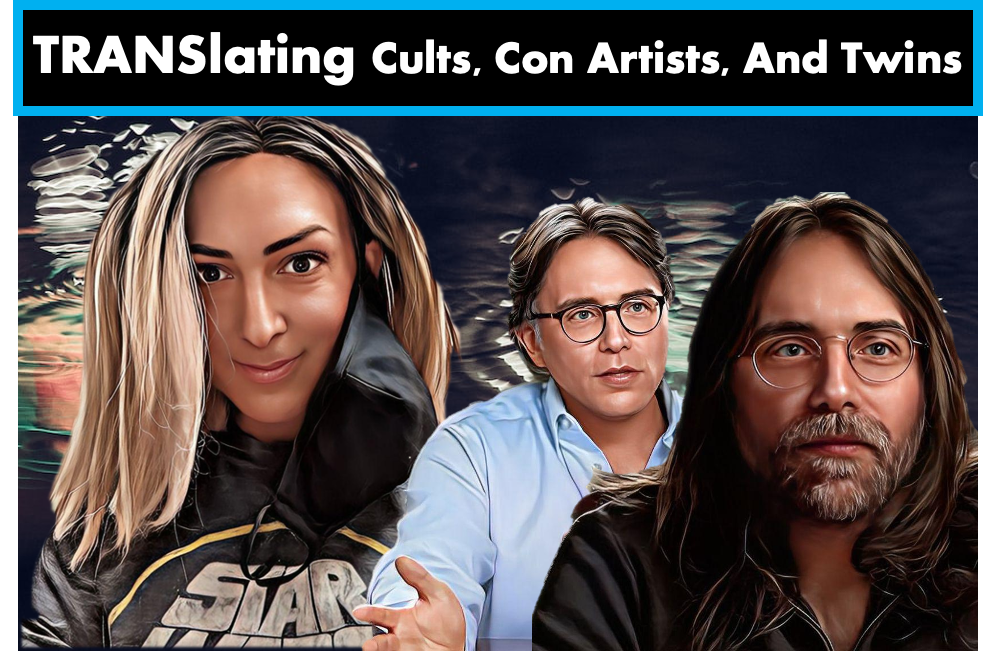
Welcome to TRANSlating Everything, a newsletter covering pop culture, news, politics, and the science of storytelling through the lens of a cool trans mom. You can support my work by leaving a tip or choosing a paid subscription to Translating Everything on Medium or Substack.
Y’all remember NXIVM?
I can’t stop thinking about what a bunch of well-intentioned people did to empower the monster at the top of the organization.
Note: a prior version of this article was published on Medium as “A Sex Cult Pushed Me To Break Free From My Brother”
I Never Had The Power To Change Him Or Protect Myself
The Vow is a docuseries on HBO covering the sex cult NXIVM, the MLM founder/cult leader Keith Raniere, and the network of co-abusers and victims Keith brought under his seductive embrace. After far too long, Keith was exposed, brought to trial, and sentenced in October 2020 to 120 years in prison for sex trafficking and other crimes
In Keith’s own recent words:
I am labeled as a sex cult leader of Hollywood actresses and an abuser of women," the 62-year-old convicted sex trafficker from Halfmoon said in a handwritten administrative appeal to the federal Bureau of Prisons.
I was never in Keith’s cult, but I was raised in an offshoot of another one while living in Jackson, MS. Back in 2008, I thought moving away was all it would take to be free, but trauma bonds aren’t broken so easily.
Now it’s 2022, and the second season finale of The Vow pushed me to process lingering shame for the part I played in helping my identical twin brother perpetuate the abuse modeled for us by the men in our lives.
A vow like no other
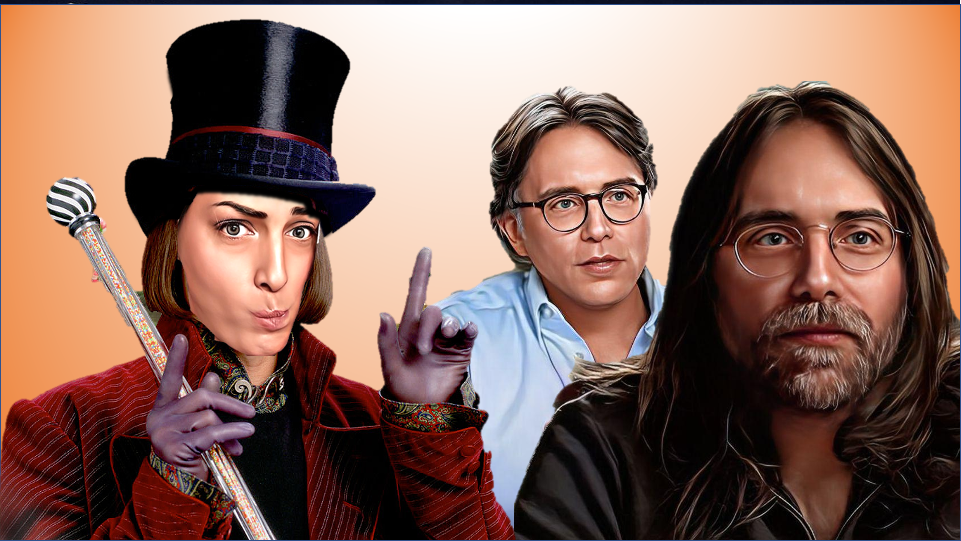
Keith Raniere, like my identical twin, promised rational discourse like no other. He promised transformation. He promised freedom.
The proof, as they say, is in the pudding.
But in the second season finale, several people who empowered Keith suddenly break down. The camera captures the moment they understand the depth of harm Keith inflicted on so many people.
One person’s tears in particular stunned me: Nancy Salzman.
She’s the person who helped Keith build the damn thing.
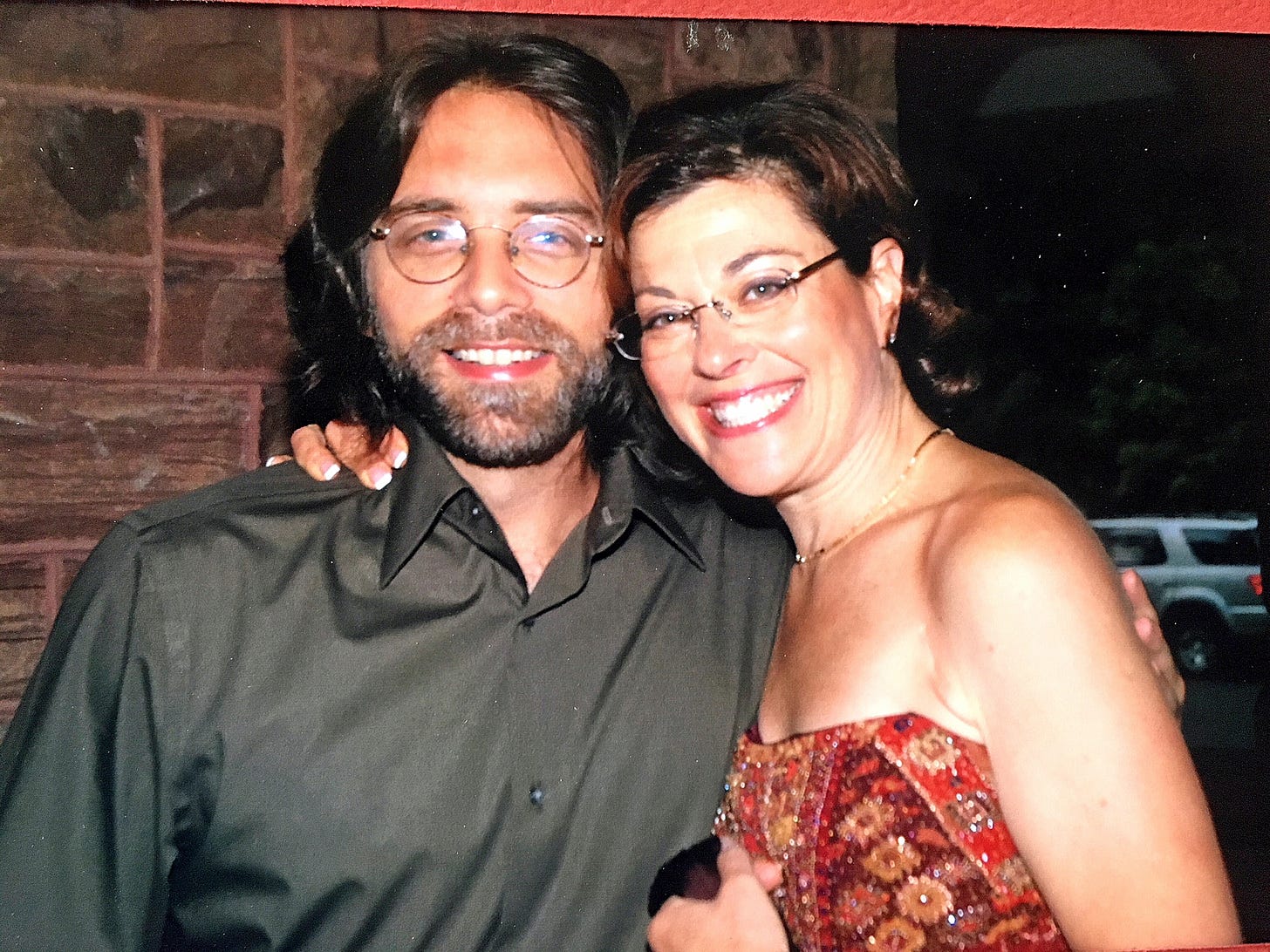
Seductive frames for horrifying arguments
“Nobody joins a cult,” said the NXIVM member turned whistleblower Mark Vicente. “They join a good thing. And then they realize they were ****ed.”
Mark, like me, describes himself as a whore for intellectual rabbit holes. But it was only in hindsight that he felt horror at the rabbit holes Keith felt compelled to lead people down.
At one point, Keith argues whether rape is really rape if the other person said yes.
At another point, he argues whether the age of consent is just as arbitrary.
The debates fuel his promise to free people from their feelings. He asserts that the discomfort you feel is a red flag for your own deep flaws.
“By being able to do the most distasteful of activities,” Keith says, “you’re going to be the agent of change.”
Does abuse only belong to the abuser?
Nancy Salzman worked with Keith from the beginning of NXIVM. She helped him develop the curriculum. She helped him spread their pedagogy across the world. She covered up the evidence of his abuse until it was too late.
In the season two finale, she still advocates for neurolinguistic programming. She points to the many, many people who were helped by the NXIVM curriculum.
Those people were transformed.
Those people were freed.
Aren’t those people proof that the program works?
Aren’t those people proof that the abuse only belonged to the abuser?
DARVO: to deny, attack, and reverse victim and offender
Nancy makes a good point, but she’s talking to a trauma expert. And that expert points out how the mechanism for abuse is baked into the NXIVM curriculum.
Coercive abuse rewires your brain. In time, you learn to experience abuse as validation. Love bombs aren’t just unending validation — they are the mechanism by which an abuser persuades you to expose yourself. The abuser transforms your most vulnerable aspects into peak experiences, all while making you dependent on them.
What are you willing to trade for your freedom?
Was it bad enough to count? After all, he didn’t beat us up.
Was it bad enough to matter? After all, the abuser can point to far more worthy dangers.
Maybe we’re just being oversensitive. Maybe we need to learn how to not feel so hurt when the abuser has such a rational explanation for why they’re not responsible for our pain.
Look at all of the people the abuser has helped. Transformed. Freed.
Sure, our feelings are valid…
But if it was just us, does that mean it was all in our head?
Except it’s never just us
There’s never just one victim.
It’s never just us.
It’s never just in our head.
An abuser is an abuser not because of any one horrifying act or victim, not because of one person’s persistent experience of abuse, but because of an abuser’s persistent pattern of behavior with harmful and abusive impacts.
I listened to each of the people struggling to reconcile the deep trust they had placed in such an abusive person, a man unwilling or simply unable to experience vulnerability and empathy with the people his actions harm and abuse.
The price of admission
“There was a process that she went through of discovering for herself information that she didn’t know and reevaluating her experience and decision making with a fuller set of facts.” - Jehane Noujaim, director of The Vow
Nancy Salzman couldn’t see the pattern of Keith’s behavior— or maybe she just didn’t want to — until confronted with text messages of Keith’s abuse toward women under 18.
Nancy couldn’t see the pattern of his abuse until she saw the pattern of her own.
She saw with heartbreaking honesty that her loyalty to Keith had brought first herself to his bed, then her own daughter.
She says openly, you know, she says, “Looking back, I was constantly doing damage control for Keith’s sex life.” So she knew, the whole time she knew that this man was a predator. [Then] she says, “I wasn’t fully hurt until he started having sex with my daughter.” - Doc Dreams host interviewing Jehane Noujaim, director of The Vow
And then came Keith’s familiar claims. It was consensual, right? What did it matter that they were family? What did it matter that this was Nancy’s own child?
She saw with sudden clarity that Keith’s arguments over the nature of consent weren’t just food for thought. They were the mechanism by which he could turn anyone into his next sexual conquest.
And finally, I understood why Nancy struggled to see the truth of the abuse.
Just as Nancy saw with sudden clarity how she had empowered Keith to abuse women for decades, I screamed with grief as I accepted how I’d helped my sibling do the same.
Call it what it is
Am I a bad person for telling the parts of my story that can be traced back to my brother?
Am I an evil person for naming his abusive behavior and describing the abusive impact of that behavior? Am I a bad sister for telling you I’m one of the people he abused?
In some ways, it was easier to let those questions shame me into silence.
In most ways, it was easier to blame myself than accept I never had the power to control or change him.
Part of my sickness was thinking I might be his first exception. I kept thinking that if I were just kinder, stronger, better, he would see me as a human. He would see me as his sister.
And then maybe, from there, he might open his eyes and ears not just to me, but to all of the women who spent years begging him to stop.
I was one of his abused women for decades
It was hard for me to see him making new social media identities across Medium, Substack, and beyond, one of them conning yet more people by purporting to be a middle-aged woman from overseas who sometimes writes about standing up against the very kind of violence he inflicted on women for decades.
It was hard for me to admit the part I played in how he kept getting away with that violence, but even harder? Accepting the parts that were beyond my control.
That feels like swallowing glass.
I’m prone to trying to talk things through, as though if the abuser just saw they were hurting me, they might experience empathy and remorse beyond their intentions.
But an abuser’s invitation for dialogue is a deception. It’s just a trick to fool you into once again serving as the fuel for their addictions.
In its own way, remembering how often I fell for that deception causes me a deeper anguish than looking at old photos and admitting how much I looked like him when I was still pretending to be a boy.
For my safety, it’s been several years since we last spoke. I had to be discarded and well into healing and recovery before I could see that when I was in my brother’s circle, I never had the power to change him or protect myself. The only choice I could make was whether to stay or leave.
Transformed, believed, freed
“[She] didn’t understand what it meant to be in an abusive narcissistic relationship. And if [she] could do something that would help other people shed light on how this happens, [she] would be open to doing it.” - Jehane Noujaim, director of The Vow]
For me, a transformative experience was talking to my sibling’s former friends and victims. I didn’t want allies or validation. I just wanted clarity.
“He’s an emotionally abusive narcissist,” one girl told me, warning me about what it took me decades to accept.
For the first time, I asked each person to share their side of the story. For the first time, I shared my side, too.
I faced my fear of what really happened when we were kids. The same kind of stuff that didn’t stop happening between us as adults until I said goodbye.
Nobody joins a cult. They join a good thing. And then they realize they were ****ed.
“Look at any type of abuse. Hurt people hurt. Abuse is repeated. Victims become victimizers. If you come down very hard on people who are victim/victimizers after they have really come forward with what they know and been remorseful about it, how are we encouraging people to take responsibility for serious mistakes that they made? We’re all human. We all make mistakes.” - Jehane Noujaim, director of The Vow
There is power in telling your story. Power in sharing your story.
There is power in finding out you are not alone.
Thank you for being a part of this journey.
Additional reading
From 5 to 40: My Life In Photos (The Cool Trans Mom)
How I Recognize DARVO In Toxic Relationships (Honestly Yours/Shannon Ashley)
‘The Vow’ Director Jehane Noujaim on Why Nancy Salzman Spoke to Her & How She Feels About Her Today (Variety/YouTube)
Cult Expert Deconstructs Keith Raniere’s Psyche | Rick Alan Ross (Koncrete Clips/YouTube)
Former Cult Member Answers Cult Questions From Twitter | Tech Support (WIRED/YouTube)
About Stephenie Magister
If you like my work and want to support it, buy me a cup of coffee! For more of my content, subscribe to my Substack newsletter: Translating Everything




